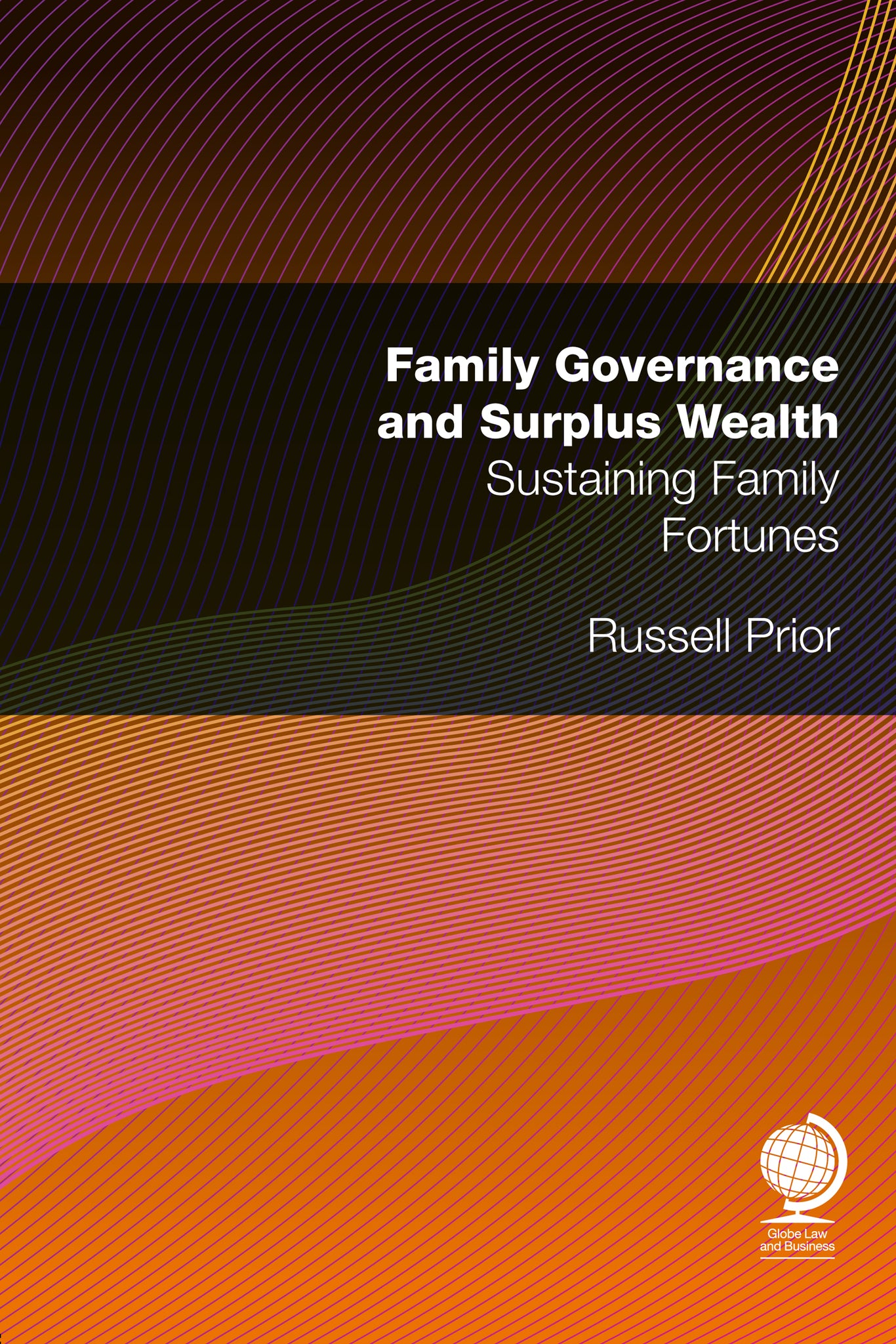We're sorry. An error has occurred
Please cancel or retry.
Family Governance and Surplus Wealth
Regular price
£95.00
Sale price
£95.00
Regular price
£95.00
Unit price
/
per
Sale
Sold out
Re-stocking soon
Family Governance and Surplus Wealth: Sustaining Family Fortunes de-mystifies the topic of family governance and shows advisers and families how governance can assist with the challenges of managin...
Read More

Some error occured while loading the Quick View. Please close the Quick View and try reloading the page.
Couldn't load pickup availability
- Format:
-
14 June 2021

With the expected rise in the global total of ultra-wealthy individuals, and the trillions of dollars and family businesses predicted to change hands over the next two decades, the considerable challenges involved in managing and transitioning ‘surplus’ wealth are set to multiply rapidly, affecting a much larger number of families and family members.
Family governance, which refers to the structures and processes families use to organise themselves and guide their relationship with their wealth, is a key tool in the transition of ownership and wealth between the generations, but it is neither well understood nor explained, particularly in the context of surplus wealth.
Family Governance and Surplus Wealth: Sustaining Family Fortunes, written by Russell Prior, an experienced consultant and adviser in Family Governance, Family Enterprise Succession and Philanthropy, de-mystifies the topic and shows advisers and families how governance can assist with the challenges of managing and transitioning surplus wealth.
It covers the characteristics and challenges of surplus wealth, why wealthy families need family governance and how family governance can help families with the successful transition of surplus wealth between the generations.
Key takeaways include:
Understand the need for a sense of shared purpose between the generations for surplus wealth and family enterprises, so it can succeed into future generations;
Determine ownership and leadership succession within the family enterprise;
Manage the balance of power and decision-making in and between the generations;
Prepare the younger generation for their role in a family with surplus wealth;
Prepare the older generation to let go of some responsibilities but show them how to take up new reins within the family;
Balance the interests of family members managing the family wealth or enterprise with those who do not, and with non-family members involved in the management of the wealth of business; and
Understand how major decisions can be taken within a complex family wealth structure or a family enterprise.
This title will be important reading and reference for all practitioners advising ultra-wealthy individuals and business families, including family business advisers, private bankers, lawyers, accountants, and financial advisers. It will also be of significant interest to ultra-wealthy family members and family office leaders.

Price: £95.00
Pages: 244
Publisher: Globe Law and Business
Imprint: Globe Law and Business
Publication Date:
14 June 2021
ISBN: 9781787424876
Format: eBook
BISACs:
LAW / General, Private client law, LAW, Corporate, Company, commercial and competition law: general

It is a brilliant overview and a great contribution to how a family can address intergenerational issues related to wealth and wealth management.
Acknowledgments
Part I – The Challenges of Surplus Wealth
Introduction
Surplus Wealth
The Human Face of Wealth
Managing Surplus Wealth
Part II – The Need for and Role of Family Governance in Managing Surplus Wealth
Defining Family Governance
Why do Families with Surplus Wealth need Family Governance?
Family Governance and Transition
Summary
Part III – Elements of Family Governance
Introduction
Example Governance Structures
Family Vision Statement
Family Governance Framework – Element Briefs
A. Family Governance Elements
i. The Family Council
ii. The Executive Family Council
iii. The Family Assembly
iv. Family Branch Assemblies
v. Family Office
vi. The Family Investment Committee
vii. Family Education Committee
viii. Family Philanthropy Committee
ix. Family Arbitration Committee
x. Family Remuneration Committee
xi. Family Employment Committee
xii. Audit and Risk Committee
xiii. Family Code of Conduct
B. Corporate Governance Elements
i. The Management Board of the Holding Company
ii. Agreement between the Shareholders
iii. Valuation/Discount
C. Trust Governance Elements
Part IV – A Final Word



